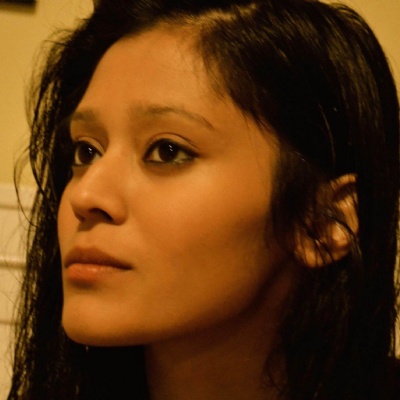A Journey in NGOs

Shreya Chatterjee (UWC Atlantic, 2010-2012) believes that public policies can change “when people begin to think, speak and act differently”. Here she tells us all about her journey working for non-governmental organisations, and how she began “The Indus Peace Project” with some fellow university alumni, with the aim of facilitating peaceful dialogue.
“During my undergraduate research at Edinburgh University I wrote my thesis on the feminist field, the work of non-governmental organisations (NGOs) and second generation prostitution in Kolkata, my hometown. I was born in India but I’ve grown up abroad my entire life. I found that through my studies I felt connected to India once again. This was an invaluable experience and exercise in personal growth.
I conducted extensive research while working with Sanlapp for my own thesis, studying the organisational structure of the NGO as well as teaching and engaging with all their work that they do with governmental bodies. It was incredibly eye opening and a question I repeatedly found myself asking was how do you see the relationship between NGOs and the State. From a policy angle, it made me very curious about international funding and corporate social responsibility models which address how the welfare state economy can function
After I completed my undergraduate studies I moved back to India and began working for Missing. The organisation was founded and run by the artist Leena Kejriwal. I am working in various capacities at Missing but particularly regarding data collection and advocacy that Missing has just begun embarking upon. We have also made a game which is free to download on Apple and Android. It won Indie Game of The Year at NASCOM and is being featured at Casual Connect in Berlin during February.
There has been a recent upsurge in hate speech between India and Pakistan and I felt something must be done about it. So myself and other alumni of Edinburgh University began The Indus Peace Project. The project’s aim is to facilitate peaceful dialogue. The Messages for Peace component has been extremely successful so far and we have gathered wonderful supporters on either side of the border. We hold no political affiliations, though of course, we acknowledge we are dealing with a highly politicised issue.
My personal aim is to learn as much as possible through travelling and speaking to new people. Public policies change when people begin to think, speak and act differently. I believe grassroots work and engaging and empowering people has the most honest effect on policy.
As much as I loved the impact it had on me, my time at UWC Atlantic College was far from rosy. The life of a third culture child can lead to much confusion, doubt and turmoil and for me it took a long time to balance that alongside my course. However the passion, resilience and the power of empathy and compassion were all learnt there. I am and will continue to serve the mission in my best possible way. Whenever I make a decision about my career or life the UWC mission comes to mind and I ask myself - am I being honest to myself? What are leading and guiding my thoughts? What good will this do, and what will I learn from it? I think UWC gave me the courage to follow my own path and act during times of turmoil whilst believing in intrinsic good.”
More information about The Indus Peace Project can be found online:
Website: https://www.shreyatanisha.com/the-indus-peace-project
Facebook: https://www.facebook.com/theinduspeaceproject/
Linkedin: https://www.linkedin.com/company/1267023/admin/dashboard/
